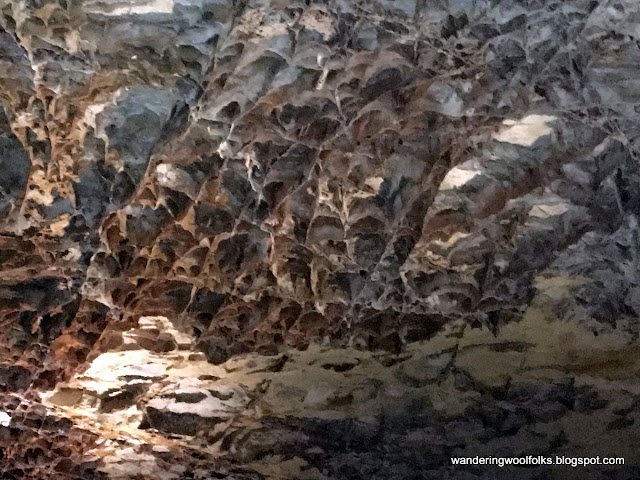Our last day of sightseeing before heading back, we headed for Wind Cave National Park about 20 miles south of our campsite. It was a nice morning but still cool with temps in upper 40s.
The cave gets its name from the wind that rushes in and out of the cave when air pressure changes.
The first know entrance was a small hole only about 16 inches in diameter which can barely be seen behind the ranger in the picture below.
Like Jewel Cave, Wind Cave is a dry cave but for some reason never developed the crystals layers on the walls like Jewel Cave did. What did develop were these thin, intricate, plate formations called boxwork formations. They were formed when the limestone rock cracked and sediment filled the cracks and hardened into rock less prone to erosion than the limestone. So when the limestone was eroded away by acidic water it left these box like creations.
 |
| These layers show a cross section of the boxworks |
 |
| This cave is riddled with cracks and passages in every direction. Almost like being inside a giant sponge. |
 |
| One of the few large chambers we were in, mostly just narrow tunnels. Notice the honeycomb appearance. |
 |
| Above ground in Wind Cave National Park |
Tomorrow we start heading homeward with no planned stops but will keep our eyes out for anything interesting.













No comments:
Post a Comment